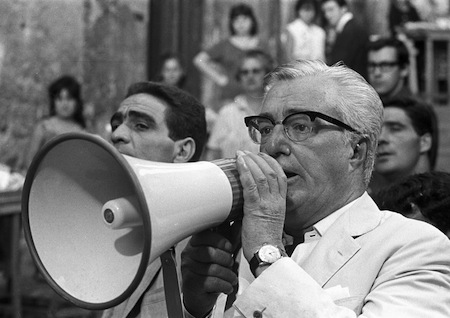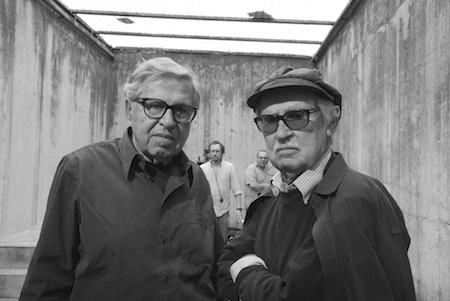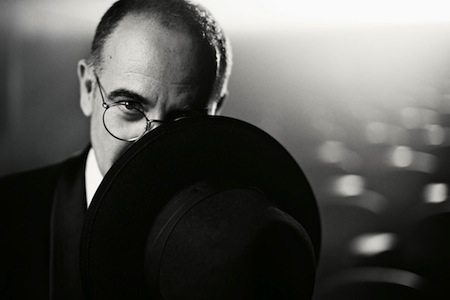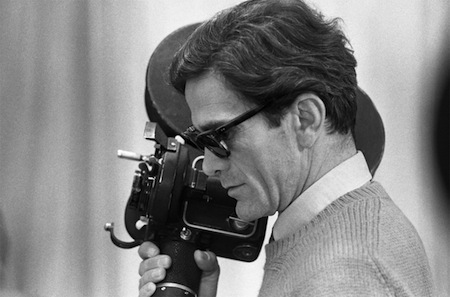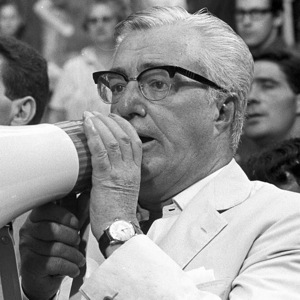A Brief History of Italian Contemporary Film Part 2
Italian Cinema Part 1
https://myetvmedia.com/feature/
A leading film auteur of the neo-realist movement, Vittorio De Sica’s prolific filmmaking career brought us several screen gems, including most notably, Two Women, Marriage Italian Style and The Garden of the Finzi-Continis. But it was De Sica’s Bicycle Thief that influenced a generation of filmmakers the world over. Cinema found new meaning in De Sica’s raw but sympathetic depiction of a common man with a practical problem. De Sica once ruefully characterized his career by stating that his worst films made him the most money but his very best, nothing. We in the audience are nonetheless much richer for his presence.
Paolo and Vittorio Taviani were once described by Marcello Mastroianni as “one man with two bodies” such was the synchrony of their working relationship. In Padre Padrone and The Night of the Shooting Stars, winners at the Cannes Film Festival in 1977 and 1982 respectively, we witness the extraordinary power of their film narrative, all at once tragic, comic, fantastic but always penetrating the deepest and most complex of human emotions and their consequences: love, trust, betrayal, vengeance and ultimately, hope. Their most recent film, Caesar Must Die won the prestigious Golden Bear at the 2012 Berlin Film Festival.
Flirting with the cliché and the stereotype but never succumbing to them is the brilliant trademark of Sicilian born Director Giuseppe Tornatore. His Cinema Paradiso pays homage to both youth and his native Sicily but is more distinctly a proclamation of Tornatore’s love for the movies – most apparent in his deft gift of a collage of censored kissing scenes at the very touching climax of the film. While not strictly coming of age narratives, Tornatore’s best films are told in retrospective and with a healthy dose of nostalgia — none more alluring than his young protagonist’s deep fascination and love for the town beauty in Malena with Moncia Bellucci convincingly cast in the title role. But Tornatore, true to form, shatters the innocence of youth with brutal portrayals of betrayal, ignorance, jealousy, envy, lasciviousness and collective violence.
Typical of a Tornatore film, you are both charmed and horrified. In 2009, Tornatore received the distinction of being the first Italian filmmaker in its sixty-sixth edition to open the Venice Film Festival with his remarkable film, Baaria.
Whether it be Ermano Olmi’s parable the Tree of Wooden Clogs depicting the nature of grace or Pier Paolo Pasolini’s torrid and contemporary retelling of the Gospel of St. Matthew or Roberto Benigni’s tragi-comic take on the holocaust in Life is Beautiful, Italian filmmakers continue to break ground and advance cinema to new heights. Most recently filmmakers like Ivan Cotroneo (I am Love, Kryptonite!), Nanni Moretti (Aprile, We Have a Pope), and many others who are premiering at the Italian Contemporary Film Festival in Toronto are making films from Italy that not only tug on your heart strings, make you laugh and cry, sometimes all at once, but much like their esteemed predecessors, they dig deep into our humanity to tell stories that are poignant in their interpretation of the human condition – this is the art of cinema.
-Alfredo Romano

